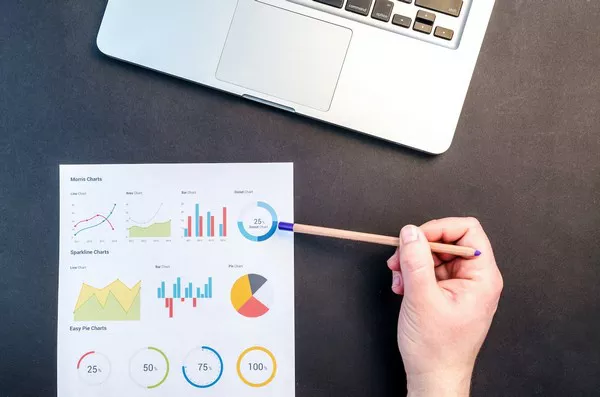Low self-esteem is a condition that affects countless individuals across the globe. It can be insidious, quietly eroding one’s sense of self-worth and manifesting in various aspects of life. Understanding these consequences is the first step toward taking action to build a healthier self-image and lead a more fulfilling life.
Emotional Impact of Low Self-Esteem
Low self-esteem has a significant emotional impact on individuals. Feelings of worthlessness, self-doubt, and self-criticism become pervasive, leading to an overall sense of unhappiness and emotional distress. This emotional turmoil can affect personal relationships, making it difficult to connect with others on a deep and meaningful level. The constant negative self-talk can contribute to a cycle of despair, leading to isolation and withdrawal from social activities.
Psychological Consequences
The psychological consequences of low self-esteem are numerous and profound. Individuals with low self-esteem are more likely to experience symptoms of anxiety and depression. They may constantly worry about what others think of them, leading to chronic stress and mental exhaustion. Furthermore, low self-esteem can result in a heightened sensitivity to criticism, often perceiving even well-intentioned feedback as a personal attack. This can make it difficult to accept constructive criticism and hinder personal growth.
Self-Sabotage and Missed Opportunities
Low self-esteem can lead to self-sabotaging behaviors. Individuals with low self-esteem may procrastinate, underachieve, or avoid challenging opportunities due to a belief in their own inadequacy. This self-imposed limitation can prevent personal and professional growth, resulting in missed opportunities that could have led to a more fulfilling life.
Unhealthy Coping Mechanisms
Many individuals with low self-esteem turn to unhealthy coping mechanisms, such as substance abuse, overeating, or self-harm, to numb the emotional pain and self-doubt. These behaviors can provide temporary relief but ultimately exacerbate the underlying issues, leading to a vicious cycle of self-destructive behaviors.
Strained Relationships
Low self-esteem can strain relationships with friends, family, and romantic partners. Individuals with low self-esteem may have difficulty trusting others, opening up emotionally, or believing that they are deserving of love and respect. Insecurity and jealousy may lead to conflict and misunderstandings, causing further damage to these important connections.
Career and Academic Consequences
Low self-esteem can have a profound impact on one’s career and academic pursuits. In the workplace, individuals with low self-esteem may be less likely to advocate for themselves, negotiate for fair compensation, or pursue promotions and new opportunities. In the academic sphere, low self-esteem can hinder performance, making it difficult to meet personal and professional goals.
Physical Health Implications
Low self-esteem is not limited to emotional and psychological consequences; it can also manifest in physical health issues. Chronic stress resulting from low self-esteem can lead to a range of health problems, including high blood pressure, cardiovascular issues, and compromised immune system function. Moreover, the unhealthy coping mechanisms often associated with low self-esteem can lead to obesity, substance abuse disorders, and other physical health challenges.
Negative Self-Image and Body Dysmorphia
Low self-esteem is often linked to a distorted self-image. Individuals with low self-esteem may develop body dysmorphic tendencies, constantly fixating on perceived flaws and imperfections. This obsession can lead to unhealthy behaviors like extreme dieting, excessive exercise, or even plastic surgery in an attempt to conform to societal beauty standards.
Inhibited Personal Growth and Development
Low self-esteem can significantly inhibit personal growth and development. The constant self-doubt and fear of failure can prevent individuals from pursuing their passions, setting and achieving goals, and embracing new challenges. This stunted personal growth can leave individuals feeling unfulfilled and stuck in a cycle of mediocrity.
Limitations in Decision-Making
Individuals with low self-esteem often struggle with decision-making. The fear of making the wrong choice and the belief that they are not capable of success can lead to indecision and hesitation. This hesitancy can prevent them from seizing opportunities and taking calculated risks necessary for personal and professional growth.
Conclusion
Low self-esteem has far-reaching consequences that extend beyond an individual’s self-perception. It infiltrates emotional well-being, psychological health, personal relationships, career and academic aspirations, and even physical health. Recognizing these consequences is a critical first step toward addressing and improving one’s self-esteem.
It is essential to remember that low self-esteem is not a permanent condition, and with the right support and self-work, individuals can cultivate a healthier self-image. Seeking therapy, practicing self-compassion, and challenging negative thought patterns are some of the steps individuals can take to boost their self-esteem and break free from the shackles of self-doubt and self-criticism. By acknowledging the consequences of low self-esteem and taking proactive steps to address them, individuals can embark on a journey toward a happier, more fulfilling life filled with self-love and self-acceptance.
Related topics:





















